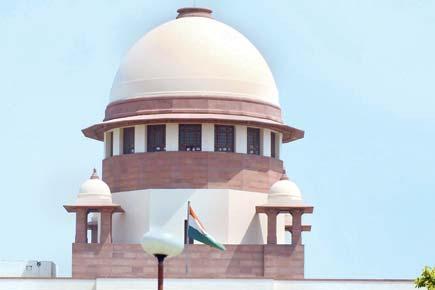The Supreme Court will examine if the Reserve Bank of India and the central government could take shelter behind the confidentiality clause in the RBI Act and other statutes for holding back names of loan defaulters and the total quantum of money in default

New Delhi: The Supreme Court will examine if the Reserve Bank of India and the central government could take shelter behind the confidentiality clause in the RBI Act and other statutes for holding back names of loan defaulters and the total quantum of money in default.

ADVERTISEMENT
The court decided to examine whether this information could be made public, as it noted that rich people take loans for running their empires and on their failure to repay them, go for loans restructuring by BFIR while farmers are committing suicide for their inability to repay small loans.
Expressing serious concern after going through the confidential report submitted by the RBI, a bench of Chief Justice T.S. Thakur and Justice R. Banumathi said that the amount of total default is "very large" and wondered whether the information can be made public.
The RBI had furnished the information in pursuance to the court's February 16 order seeking to know about debtors in default of payment of amounts more than Rs.500 crore, along with an affidavit in a sealed cover. The court asked counsel Prashant Bhushan appearing for petitioner, NGO CPIL to frame the questions relating to the issue that would be addressed by the court on the next hearing.
For "clarity and focused hearing," the court asked Bhushan, "you can formulate the issues and we will hear them." It issued notice to the finance ministry and Indian Banks Association ahead of the next hearing on April 26. The court decided to address the larger issue as it noted that its concern is not that RBI is a regulator only and is meant to be a watchdog.
As the court asked Bhushan to frame the issues, it, in a pointed question asked senior counsel Jaideep Gupta, appearing for the RBI, if not the names of the defaulters, whether the total amount in default could be made public. "You say that amount that are in default are large. What steps you are taking for recovering them, we will like to hear on that," it said.
However, Gupta told the court that "these are aggregate figures (and their disclosure) will have an impact on the economy". Section 45E of the Reserve Bank of India Act prohibits disclosure of any information relating to the creditors, saying: "(1) Any credit information contained in any statement submitted by a banking company under section 45C or furnished by the Bank to any banking company under section 45D, shall be treated as confidential and shall not, except for the purposes of this Chapter, be published or otherwise disclosed."
As Gupta stressed that under the RBI Act commercial confidentiality had to be maintained, Solicitor General Ranjit Kumar, appearing for the government, also cited the Credit Information Companies (Regulation) Act, 2005 and the Public Financial Institutions (Obligation as To Fidelity and Secrecy) Act, 1983, to buttress the argument of maintaining the commercial confidentiality of the borrowers in default.
As RBI's counsel tried to flag issues in support of apex bank's resistance to share information on debtors including that of fiduciary relationship, Bhushan said that the apex court by its December 16, 2015 verdict had addressed all these pleas and had rejected them.
In this judgment, a bench of Justice M.Y.Eqbal (since retired) and Justice C. Nagappan, while reminding the apex bank of its statutory duty, had said: "RBI is clearly not in any fiduciary relationship with any bank. RBI has no legal duty to maximize the benefit of any public sector or private sector bank, and thus there is no relationship of 'trust' between them. RBI has a statutory duty to uphold the interest of the public at large, the depositors, the country's economy and the banking sector."
The court is hearing a public interest litigation citing loans given by HUDCO in 2003 to some companies with questionable track records. The court has been told that there is a circle where the mortgaged assets of a defaulting company again go back to it when those assets are auctioned to recover the bad loans.
 Subscribe today by clicking the link and stay updated with the latest news!" Click here!
Subscribe today by clicking the link and stay updated with the latest news!" Click here!







